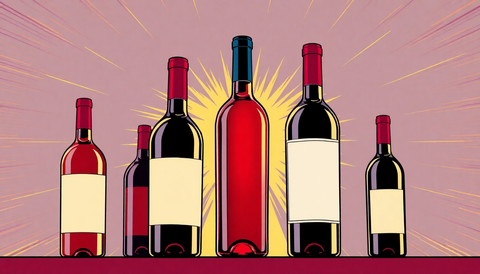Introduction
In recent years, global awareness around environmental issues has profoundly impacted many industries, including wine. Australian winemakers are at the forefront of embracing sustainability, ensuring that their craft not only produces exceptional wines but also protects the land for future generations. Among the notable regions leading this sustainable revolution, McLaren Vale stands out as a shining example. This picturesque region is combining time-honoured traditions with innovative eco-friendly practices to redefine what it means to craft wine responsibly. In this comprehensive exploration, we delve into how McLaren Vale is actively shaping the future of Australian wine through its unwavering commitment to sustainability, quality, and community stewardship.
The Promise of Sustainable Winemaking
Sustainable winemaking involves a multi-faceted approach that seeks to balance environmental health, economic viability, and social equity. It goes beyond merely meeting industry standards — it is about creating a resilient system that enhances terroir, preserves biodiversity, reduces carbon emissions, and supports local communities. This holistic approach ensures that vineyards can thrive amid changing climate conditions while maintaining the integrity and character of their wines.
Why Sustainability Matters for Australian Wine
Australia faces unique environmental challenges such as prolonged droughts, rising temperatures, and unpredictable weather patterns. These factors threaten grape quality and vineyard longevity. As such, adopting sustainable practices is crucial to safeguard the industry’s future. Additionally, consumers worldwide are increasingly seeking eco-conscious wines, demanding transparency and accountability. Regions like McLaren Vale are demonstrating that sustainability is not only an ecological necessity but also a strategic advantage in the global wine market.
Way Beyond Tradition: The Innovative Practices in McLaren Vale
McLaren Vale’s winemakers are pioneering a wide array of sustainable techniques, integrating science, technology, and traditional knowledge to minimise environmental footprints. Key innovations include:
- Organic and Biodynamic Farming: Many vineyards embrace organic certification, avoiding synthetic chemicals, and adopting biodynamic principles that view the vineyard as a self-sustaining ecosystem.
- Water Management: Given South Australia’s arid climate, efficient water use is vital. Techniques such as drip irrigation, greywater recycling, and soil moisture monitoring are standard practices to optimise water usage.
- Soil Health and Biodiversity: Cover cropping, composting, and minimal tillage help conserve soil structure, increase organic matter, and encourage beneficial insects and microflora.
- Energy Efficiency: Solar panels, wind turbines, and other renewable energy sources are powering vineyards and wineries, drastically reducing carbon emissions.
- Waste Reduction and Recycling: Many wineries implement composting, reuse of packaging materials, and innovative waste-to-energy programs.
The Cultural Shift: Core Values Supporting Sustainability
Underlying McLaren Vale’s sustainable transformation are a set of core values that resonate deeply with both industry pioneers and consumers:
- Authenticity: Every wine reflects the true character of its land, with no shortcuts or artificial enhancements.
- Stewardship: A profound commitment to caring for the land, water, and community is at the heart of sustainable practices.
- Quality & Curated Selection: Rigorous selection processes ensure only the finest grapes and techniques are used, maintaining high standards.
- Education & Transparency: Open communication about sustainable efforts fosters trust and encourages industry-wide adoption.
The Role of Community and Collaboration
McLaren Vale’s success stems from collective effort. Local wineries, growers, research institutions, and government bodies collaborate to promote sustainable innovations. Community-led initiatives, such as educational programs and sustainability certifications, cultivate a culture of shared responsibility. This sense of unity ensures that sustainability becomes embedded in the region’s identity, drawing more stakeholders into the movement.
Environmental Impact and Economic Benefits
The environmental benefits of sustainable practices are clear — healthier soils, cleaner water, and reduced emissions contribute to a more resilient landscape. Equally important are economic advantages: reduced resource costs, improved brand reputation, and increased consumer loyalty. Wineries that invest in green technologies often experience higher market value and greater export opportunities, positioning McLaren Vale as an industry leader.
Shaping the Future — How McLaren Vale Inspires the Industry
The innovations and philosophies emerging from McLaren Vale serve as a blueprint for other Australian wine regions. As global growers observe the region’s success, many are adopting similar practices. The region’s leadership demonstrates that sustainability and profitability can coexist, inspiring a paradigm shift across the industry. Policymakers and industry associations are increasingly endorsing sustainable certification programs and incentivising eco-friendly initiatives, further accelerating this transformation.
Case Studies of Sustainable Wineries in McLaren Vale
Several wineries exemplify this movement:
- Sample Vineyard A: Pioneered organic viticulture and implemented solar energy infrastructure, reducing their carbon footprint by over 40%.
- Sample Winery B: Emphasised biodiversity by establishing native plantings and habitat corridors, enriching local ecosystems and attracting beneficial insects.
- Sample Wineries C & D: Adopted water recycling systems and innovative irrigation techniques, ensuring consistent grape quality despite periods of drought.
The Future Outlook: A Sustainable and Resilient Wine Industry
Looking ahead, McLaren Vale’s commitment to sustainability promises a vibrant future. Continuing advancements in eco-friendly technology, community engagement, and international collaboration will drive the region’s evolution. Importantly, as global consumers demand transparency and environmental responsibility, McLaren Vale’s wineries are well-positioned to meet these expectations, reinforcing their reputation as pioneers of sustainable wine.
Conclusion
McLaren Vale exemplifies how sustainable winemaking can be a catalyst for regional prosperity, environmental preservation, and industry innovation. Its comprehensive approach — rooted in core values of authenticity, stewardship, quality, and education — ensures that the region’s wines will continue to thrive in the face of climate challenges. For wine lovers, industry stakeholders, and the broader community, the region’s pioneering efforts offer a blueprint for creating a more sustainable and delicious future — one bottle at a time.




Comments (0)
There are no comments for this article. Be the first one to leave a message!